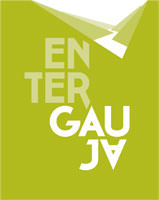
- Enter Gauja
- Things to do
- News & Events
- News
- Events
-
Latest events
- Eat & Drink
- Accommodation
- E-shop
The lightest of breezes will cast the rustling leaves in the park aloft. The flutter of wings will announce the return of the stork to its home in the castle house tower. And don’t be surprised to hear the ducks calling to one another as they play hide and seek among the water lilies. The bathhouse will resound to the sound of flailing birch besoms, while the paintbrush caresses the canvas as it strives to render this scene immortal.
Fishing | Bicycle hire | Sauna | Turkish steam bathhouse | Children’s playground | Small pool for a morning swim | Jacuzzi in luxury guest rooms | Free WiFi | Free private car parking | Lake gazebo for marriage ceremonies | Excursions around the Castle and park
Latvian, English, German, Russian
The grounds around Bīriņi Castle were inhabited as early as the 13th century when Livonian clans resided here. The Castle acquired its name in the 16th century due to the courage of Johan Biring, who led a company of Latvian, Polish and German troops against Ivan the Terrible, expelling him from Vidzeme’s largest towns. For this heroism, Biring was rewarded with the gift of Kolcen Castle, popularly known as Biring Castle, out of gratitude for his heroic acts.
At the end of the 18th century, the Castle was ruled by Count Mellin, who was a passionate devotee of culture – he established a sizable collection of maps of Latvia and Estonia and fought for the repeal of serfdom. The castle park crypt, which was built in accordance with Mellin’s wishes, is a unique example of architecture – it was built under a natural
The Castle acquired its current appearance in 1860, when, in accordance with the plans of the then owner of the Castle August von Pistolkorss, it was built in a neo-gothic style as a semi-circular architectural building. At the end of the 19th century, his son Alexander von Pistolkorss undertook to implement the audacious vision, establishing a seaside resort – Saulkrasti (Neubad), and building a road from Bīriņi Castle to the new oasis.
Bīriņi Castle has also experienced its version of Romeo and Juliet – Alexander’s son Erik fell in love with a Castle maidservant, which his mother objected to. Cunningly, she managed to break up the lovers, which was a sad turn of events that led to the suicide of both the maidservant and Erik.
Nowadays, the Castle has been fully restored to its former glory and is one of the most notable Castles in Latvia. With its hotel and restaurant, as well as leisure opportunities in the style of the aristocracy, it attracts people seeking to enjoy a break in a tranquil atmosphere and those who wish to organise celebrations, especially weddings.